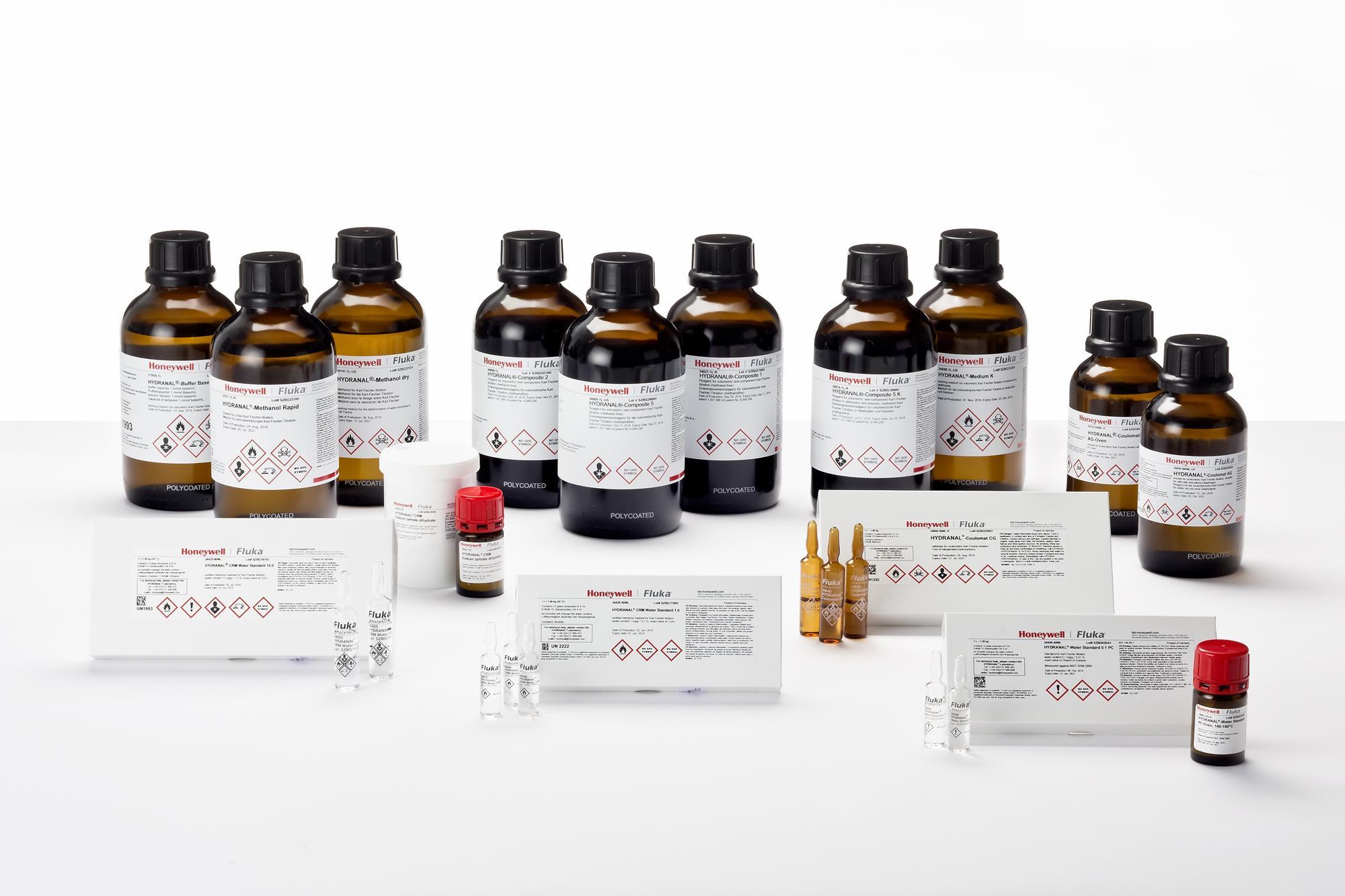
Addressing the cross-sector KF titration skills gap
Submitted by:
Andrew Warmington
Aparajita Kapoor, global manager for Hydranal reagents at Honeywell Research Chemicals, looks at how to make Karl Fischer titration work better in industry
Karl Fischer (KF) titration is the most accurate technique for moisture analysis, but a lack of skilled chemists with experience using it is undermining its effectiveness and the quality of results. Inaccurate results can have serious consequences, potentially life threatening in some applications, so it is vital labs take steps to ensure chemists are familiar with KF titration best practice.
Since the early 20th century when it was invented, KF titration has become well established because of its numerous practical advantages over other methods of moisture determination. These include superior accuracy, increased speed and selectivity. Today, its use is common across industries, with both chemists and non-chemists trained in the method.
Despite being in use for decades, unfortunately chemists still make many process errors, most often due to a lack of expertise. While KF titration is commonly used in commercial applications, the process is typically not taught in universities. As a result, many people first learn the method on the job, meaning that standardised best practices are often incorrectly communicated or missed entirely.
While standard operating procedures (SOPs) can help to address these issues, they will not necessarily prevent errors resulting from a lack of knowledge. The most frequent ones include:
* Failing to account for side reactions: A sample may react with the solvent to create or consume water, resulting in inaccurate water determination. This error is prevalent in oils and chemicals, but can affect other sample types too
* Poor sample solubility: A sample may not fully dissolve and therefore render water determination inaccurate. This can significantly impact companies in the food and beverage industry
* Incorrect sample handling: A sample may lose or take up additional water during incorrect sample handling resulting in inaccurate readings. This is often seen in the pharmaceutical sector
* Incorrect calibration of KF instruments: Instrument performance may vary over time with use. Proper functioning requires regular checking of calibration using water standards
* Choosing the wrong method. Sample needs vary and there are a variety of factors to consider when choosing a method. Making the wrong choice leads to multiple additional errors, and is common across industries
Of these, the last two are a direct result of a skills gap which can be addressed with proper training. The others present a bigger challenge, requiring more experience to fully understand and rectify. Doing so might even demand modifications to the standard KF titration technique.
The kind of modifications required very much depends on the specific application and can vary significantly from sector to sector. Key examples of errors in critical industries and their solutions are discussed below.
Inaccurate water measurement in oil and its associated products can have significant cost implications, with buyers potentially being overcharged. More importantly, getting water content wrong can have serious health and safety implications. Too much water can also make the oil conductive, leading to shortcuts in generators and other hazards.
If water content in aviation fuel is too high for instance, it can freeze at altitude, potentially causing engines to fail. Oil products often contain additives for performance, which not only lead to poor solubility in common alcohol-based KF titration reagents, but also cause side reactions during titration resulting in incorrect readings.
To avoid this, it is suggested labs use an indirect method, such as the KF oven, which avoids contact with the additives, buffering the KF vessel to suppress the side reactions. Alternatively, they can consider working with specialised methanol free reagents, suitable for titrating oils.
Pharmaceutical applications are perhaps the most sensitive to inaccurate water determination, with costly production stoppages required every time an error is detected, because errors in this space have the potential to seriously impact human health. The products also require special handling. For example, lyophilised vaccines are very hygroscopic and require special techniques to work in controlled environments to avoid moisture absorption and inaccurate results.
By examining the different KF titration issues commonly occurring across industries, it is becoming clear that experience and technical skills are the essential element, besides high-quality equipment and reagents, when it comes to ensuring processes deliver the desired outcome. Lab managers need to ensure sufficient resources are dedicated to proper training and support. Only by putting the proper processes in place will organisations overcome the skills gap. And by doing so, they will also give operational efficiency a boost to improve overall lab performance.
CONTACT
Hydranal Technical Support
Europe & Global Market +49 5137 999-353
USA and Canada: +1 800 493-7262
https://www.lab-honeywell.com/products/featured-hydranal/
